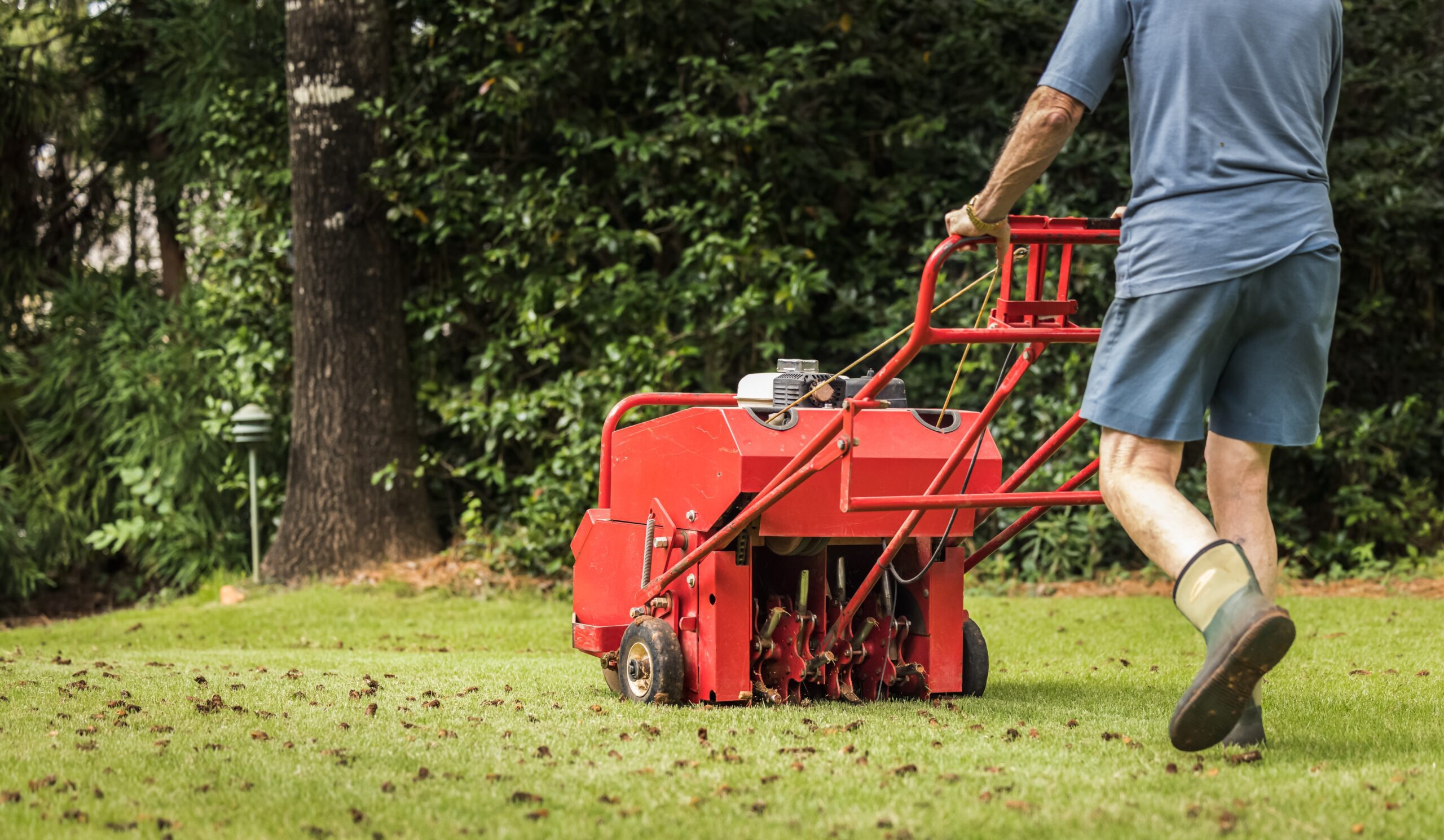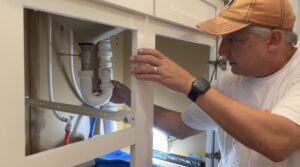Fall Lawn Care – 4 Easy Steps
Introduction:
We live in Eastern Pennsylvania where we have all four seasons. Late August through early October is the optimal time to handle Fall lawn care tasks to ensure a great-looking lawn the following season. Last fall, we skipped aeration and overseeding, and our lawn paid the price, I was not happy with how it looked this year.
Wherever you are located, I thought this was a great topic to put in front of everyone as fall approaches. You can Google around and find hundreds of articles with complicated lawn care methods for the fall with dozens of steps. It’s really pretty simple and the following 4 steps should ensure your lawn is healthy and lush next spring.
Continue Mowing:
Regardless of the climate where you are, continue mowing as long as the grass grows. In colder Northern states, lower the cutting deck for the last two mowings to prep for snow. For the South, adjust the mowing height based on the grass type. Also, make sure you use a bag to clean up leaves and grass clippings in the fall. If left over the winter, these will create thatch which will prevent nutrients from getting to where they need to be as well as choking new growth.
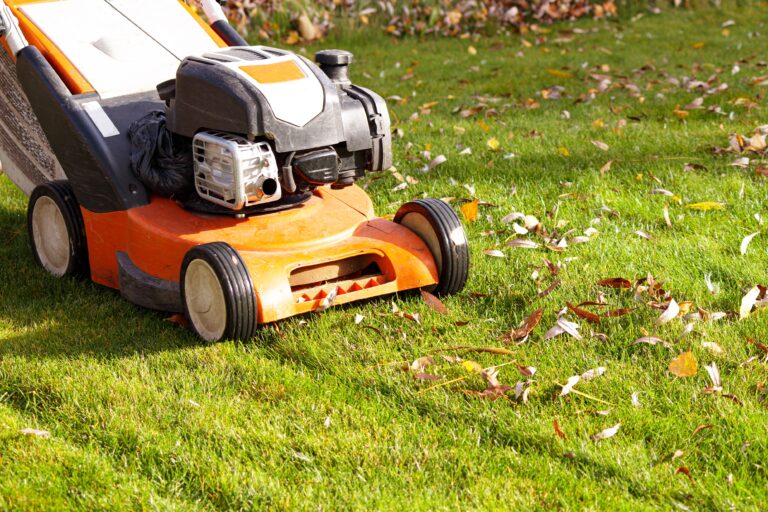
Aeration:
DON’T SKIP THIS STEP! Whether you’re in the humid Southeast or dry Southwest, fall aeration is key. It ensures that water, oxygen, and nutrients reach the grassroots.
You can hire someone to handle this task, but renting an aerator is probably a less expensive option. Talk to your neighbors, they may want to aerate too. Over the years, we have coordinated times and shared a rental with neighbors which helps keep costs down.
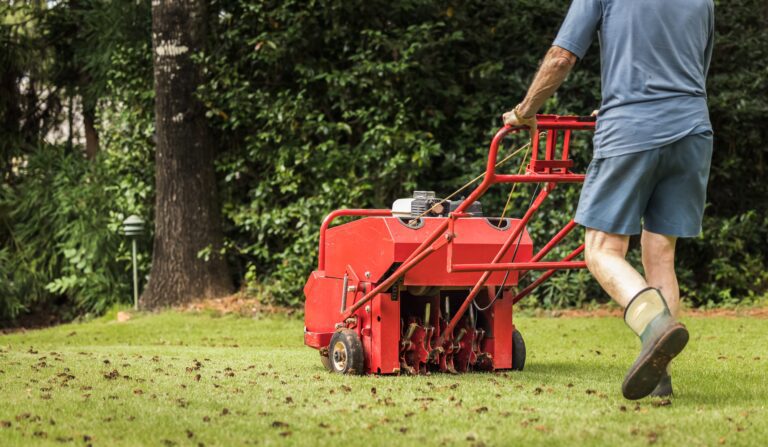
Overseed:
Overseeding is the process of sowing seeds over an existing lawn. It’s a strategic approach that helps improve the overall density and color of your lawn, filling in bald spots and discouraging weeds from taking over.
How to Overseed: Step-by-Step
Lawn Evaluation: Before starting, assess the condition of your lawn. Identify thin or barren areas, and understand the type of grass you currently have.
Mowing: From step 1 above, mow the lawn shorter than usual and collect the clippings. This helps seeds make direct contact with the soil.
Aeration: From Step 2 above, aerate the lawn to ensure the soil is loose. This improves seed-to-soil contact, facilitating better germination rates.
Choosing the Right Seed: Pick a grass seed that complements your existing grass type or introduces desired characteristics to the lawn.
Application: Spread the seeds evenly. Using a broadcast spreader helps ensure uniform distribution.
Watering: After overseeding, water the area lightly but consistently, keeping it moist until the new seeds germinate.
Maintenance: Avoid heavy traffic on the newly overseeded areas for a few weeks. Mow the lawn only when the grass reaches a mowable height, usually 3-4 inches.
Fertilization: About a month after overseeding, apply a balanced fertilizer to promote growth.
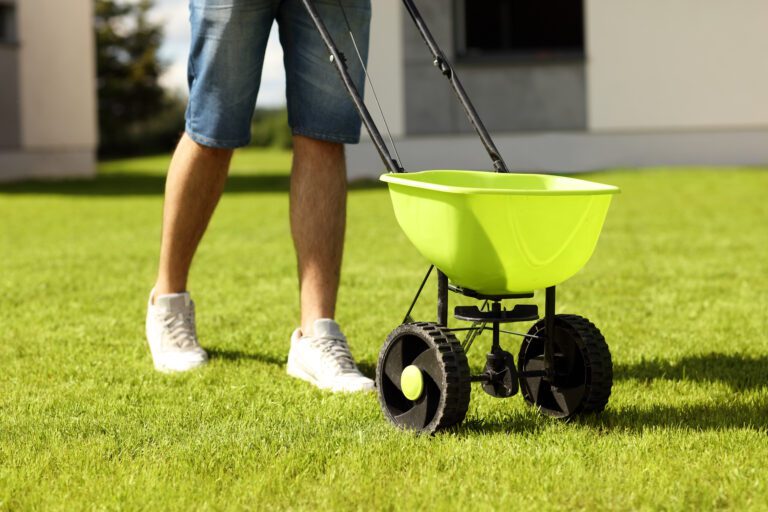
Fertilize:
Fertilization is important throughout the year, but fall fertilization is really important to ensure your lawn thrives through the winter and has a great start the following season. Whatever product or service you use, primary nutrients such as Nitrogen, Potassium, and phosphorus need to be maintained along with secondary nutrients such as calcium, magnesium, and sulfur. Trace elements of iron, manganese, and zinc are also important. Choosing a good “system” such as Scotts Turf Builder handles all of these needs.
If you are a DIY’er and want to handle fertilization on your own throughout the year, choose one “system” and stick to the instructions. I’m a fan of Scotts Complete 4-Step Program, but it’s also a good idea to consult with a local pro in the area for any region-specific needs.
Good Luck and enjoy your lush green lawn next spring!

